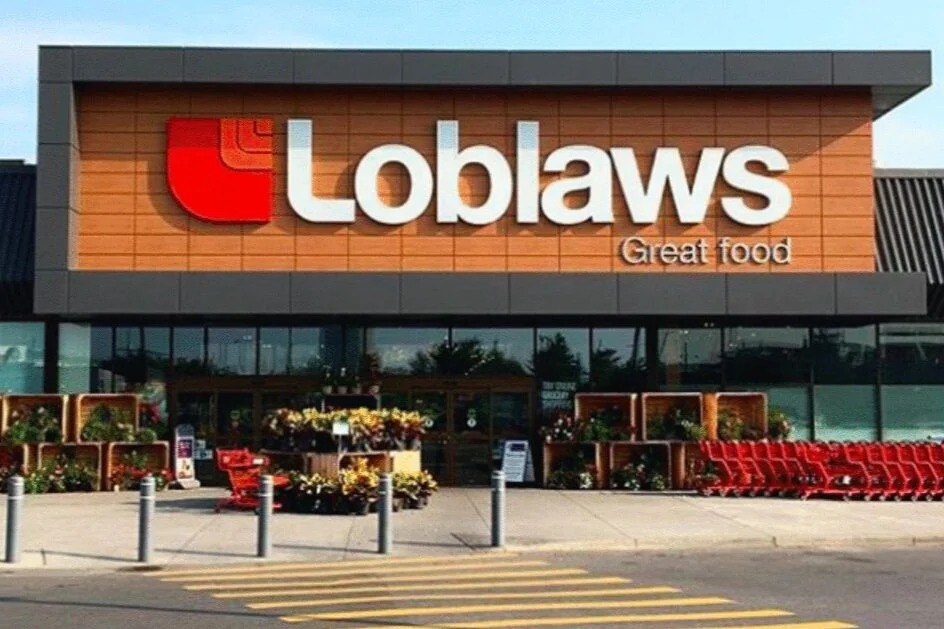Retail’s New Normal: How Canadian Retailers Need to Adjust if COVID-19 Sticks Around
/STOCK IMAGE
By Ryan Webber, Senior VP of Enterprise Mobility at SOTI
The coronavirus pandemic is testing the retail industry in Canada like never before. With no end in sight, future sales are impossible to forecast, let alone the ability to fully evaluate the profound impact it will have on these businesses.
One of the most important steps touted in containing the spread of the virus here has been to follow social distancing guidelines, which require people stay a minimum of two metres/ six feet apart from one another. For customer-facing jobs like retail in Canada, these new guidelines have forced them to rethink basic in-store procedures and the customer experience should the virus persist once retailers are given the green light to reopen their doors.
The likelihood of having to deal with an extended period of COVID-19 increases with each passing day. Alarmingly, the U.K. is predicting the health crisis to last until spring of 2021, a sentiment backed by the Centres for Disease Control and Prevention in the U.S.
PHOTO: TECHCRUNCH
EXAMPLES OF TARGET BEACON TECHNOLOGY BEING IMPLEMENTED IN THE US. PHOTO: TARGET
That leaves retailers scrambling to find innovative solutions that will help them continue doing business during what is typically a slower summer season for the industry — all while doing their part in preventing the spread of the virus.
In Canada, retailers have been slowly adopting new in-store technologies that have transformed the way customers shop and go about their daily lives in other parts of the globe. It’s reasonable to see an immediate future where mobile technology can help combat the spread of the virus in stores right here in our own backyard. After all, the technology to do so already exists. Consider the following:
Retail giant Target in the US has been using beacon technology via its own app to track customers in-store in order to serve up product-related alerts and discounts based on their location. The retailer also uses it to help customers create shopping lists and direct their movements within the store based on their lists. Now with the very real threat of COVID-19, retailers could potentially use this highly accurate technology to emit warning signals should customers near six feet of one another.
Scan-as-you-go systems are already popular in Canadian retailers, where customers simply scan items, pay for their purchases and walk out the store without ever needing to see a cashier. In today’s climate, where cash payments are being banned and limits are being put on close human interaction, retailers can anticipate seeing more of this technology being introduced, along with self-checkouts.
In China, retailers have been using a combination of facial recognition with thermal detection cameras to help contain the spread of the coronavirus. Now, the companies behind facial recognition have upgraded the technology to identify people wearing masks.
Digital kiosks aren’t a new idea. They have been used by retailers widely to deliver everything from targeted ads and product information to instructional product demos. But imagine how effective these kiosks could be in adhering to social distancing guidelines by providing valuable in-store information that would typically be left to a retail associate.
a poster simulating facial-recognition software at the Security China 2018 exhibition on public safety and security in Beijing, China. PHOTO: BUSINESS INSIDER
SCAN-AS-YOU-GO SYSTEM AT WALMART. PHOTO: CBC.CA
As customers globally are becoming more accustomed to mobile and IoT-powered technologies in-store, Canadian retailers will also need to adapt to this “new normal”. Unsurprisingly, consumers worldwide have been demanding faster shopping experiences even prior to the emergence of the coronavirus, and they believe mobile technology is essential to this. According to SOTI's State of Mobility in Retail Report, 67.3 per cent of consumers believe mobile technology is the most effective way to deliver a faster shopping experience, while nearly one-third (32.6%) are unwilling to sacrifice personal data security to improve their in-store experience, underscoring the importance of secure mobile technology in this brave new world.
Armed with these critical technologies, retailers can prepare for the future by addressing the health and safety of customers and employees, while discovering valuable ways to revolutionize the in-store experience for all.
Ryan Webber is Senior Vice President of Enterprise Mobility, SOTI









![L.L.Bean Continues Canadian Expansion with 1st Toronto Store [Photos]](https://images.squarespace-cdn.com/content/v1/529fc0c0e4b088b079c3fb6d/1603908990197-KDT3UNTEHFBFJF5FJ36N/L.L.Bean_Don_Mills_8.jpg)



![Retail-insider-NRIG-banner-300-x-300-V01-3[2].jpg](https://images.squarespace-cdn.com/content/v1/529fc0c0e4b088b079c3fb6d/1593476525034-QRWBY8JUPUYFUKJD2X9Z/Retail-insider-NRIG-banner-300-x-300-V01-3%5B2%5D.jpg)
![Retail-insider-NRIG-banner-300-x-300-V01-2[2].jpg](https://images.squarespace-cdn.com/content/v1/529fc0c0e4b088b079c3fb6d/1593476491497-W6OZKVGCJATXESC9EZ0O/Retail-insider-NRIG-banner-300-x-300-V01-2%5B2%5D.jpg)
![Retail-insider-NRIG-banner-300-x-300-V01-4[2].jpg](https://images.squarespace-cdn.com/content/v1/529fc0c0e4b088b079c3fb6d/1593476508900-TJG5SNQ294YNOCK6X8OW/Retail-insider-NRIG-banner-300-x-300-V01-4%5B2%5D.jpg)
Other news: Gap closing most mall stores, co-working space replaces Shinola store, Star Bédard rebrands, Nobis gets charitable.